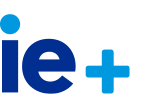
12 Dec ARTIFICIAL INTELLIGENCE, SUSTAINABILITY, AND THE NEW WAY OF WORK: A CRITICAL THINKING APPROACH
This seminar is designed to sharpen your critical thinking skills in today’s fast-paced technological landscape. You’ll explore the theoretical foundations of critical thinking, stay ahead of emerging technological trends, and dive deep into three key areas: Artificial Intelligence (AI), Sustainability (ESG), and New Ways of Work. Through engaging discussions, real-world case studies, and hands-on exercises, you’ll learn to analyze complex situations, evaluate evidence, and make well-informed decisions.
ANTONIO BUDIA-GRAÑA
Antonio Budia Graña leads Microsoft’s Partners division in Spain.
The company has an ecosystem of more than 12,000 partner companies in our country that develop products, build solutions, and offer services based on Microsoft technology. It is a highly professional and specialized ecosystem that continues to grow and strengthen its capabilities in designing and providing innovative solutions in areas such as cloud, data, artificial intelligence (AI), and security, among others.
Budia has over twenty years of experience in the technology industry, holding various positions of responsibility at Microsoft Spain and Latin America, including roles in Marketing, Channel, Business management, Sales and Partners Director, and most recently, Director of Operations and Marketing for Microsoft Spain.
The executive holds a degree in Computer Science from the Universidad Pontificia de Comillas – ICAI, a degree in Marketing from ICADE, an executive degree in Business Marketing Strategy from the Kellogg School of Management in Chicago, and a PDG (General Management Program) from IESE.
Currently, he also serves as the president of the Board of Directors of Forética, the leading organization in sustainability and corporate social responsibility in Spain. Local chapter of the World Business Council for Sustainable Development (WBCSD).

Skills
Through this course, students will develop several core skills that are essential for critical thinking within the tech environment. These skills include:
– Analytical Thinking: Students will learn how to break down complex problems, identify key components, and analyze information critically. They will develop the ability to evaluate evidence, recognize patterns, and draw logical conclusions.
– Decision Making: Students will enhance their decision-making skills by learning how to weigh multiple perspectives, consider ethical implications, and make informed choices within the tech environment. They will also develop the ability to identify and mitigate biases in decision-making processes.
– Problem Solving: Students will gain proficiency in applying critical thinking to solve real-world problems in the tech environment. They will learn to identify underlying issues, generate creative solutions, and evaluate their effectiveness.
– Ethical Reasoning: Given the focus on topics such as AI, sustainability, and the New Way of Work, students will develop ethical reasoning skills. They will explore ethical dilemmas and learn to assess the impact of tech decisions on individuals, society, and the environment.
– Adaptability and Resilience: Students will develop the capacity to adapt to the fast-paced and ever-changing tech environment. They will learn to navigate emerging trends, embrace innovation, and develop resilience in the face of uncertainty.
– Collaborative Skills: Through group discussions, case study analysis, and interactive exercises, students will enhance their collaborative skills. They will learn to effectively communicate their ideas, listen to diverse perspectives, and work collaboratively to solve problems.
– Critical Evaluation: Students will sharpen their ability to critically evaluate information, including emerging tech trends, research findings, and industry practices. They will learn to distinguish between reliable and biased sources of information and develop a discerning approach to information consumption.
– Communication: Students will improve their communication skills by articulating their thoughts, arguments, and analyses effectively. They will learn to present complex ideas in a clear and concise manner, both orally and in writing.
– Self-Reflection: Critical thinking requires self-awareness and self-reflection. Students will develop the capacity to reflect on their own thinking processes, biases, and assumptions. They will learn to continually assess and improve their critical thinking skills.
By cultivating these core skills, students will be better equipped to navigate the challenges and complexities of the tech environment, make informed decisions, and contribute effectively to their organizations.
Schedule
Which dates?
15-sep
22-sep
29-sep
06-oct
20-oct
27-oct
What day?
MONDAYS
What time?
13.00-14.30
